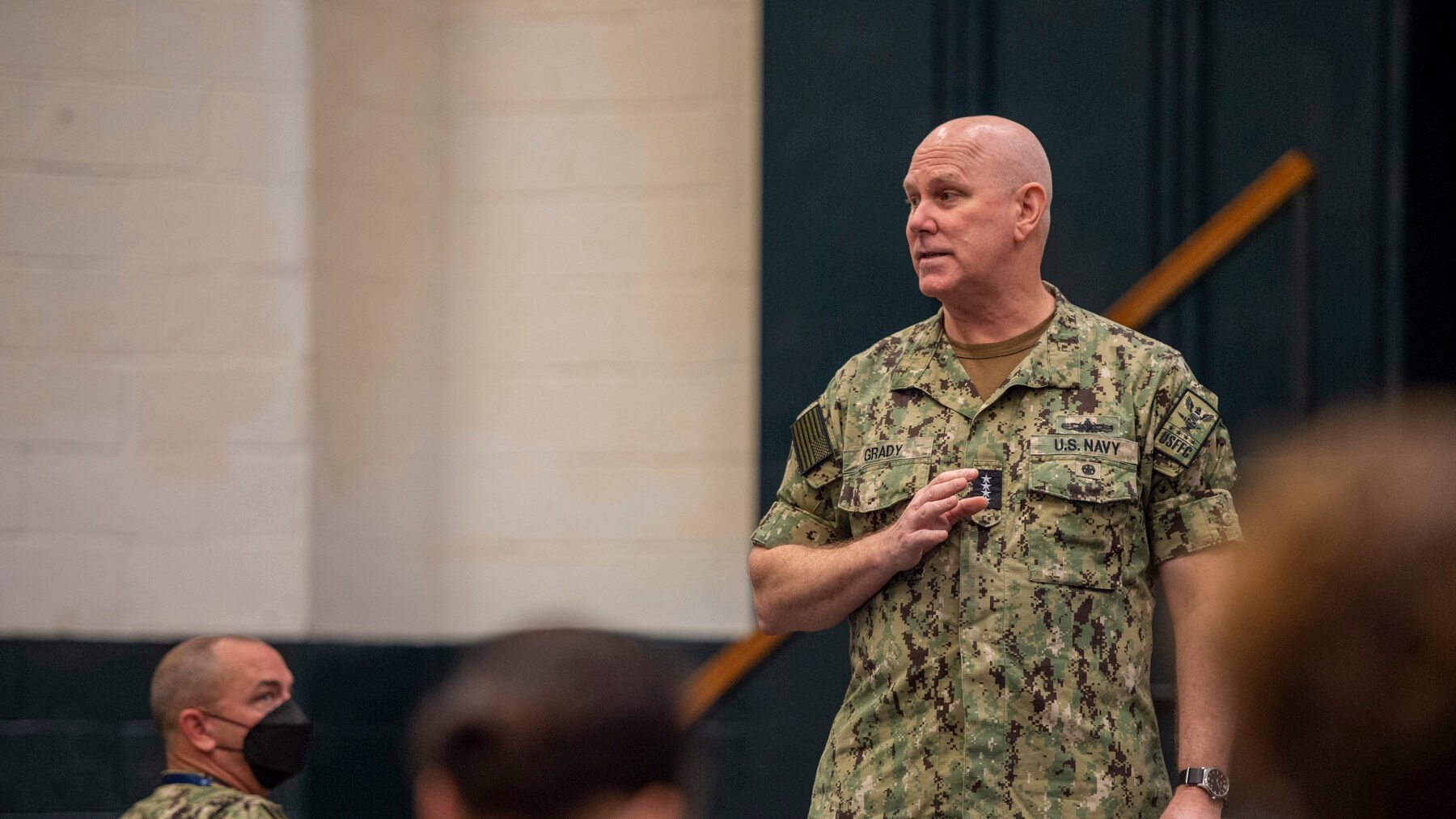JUSTIN KATZ

WASHINGTON: Adm. Christopher Grady, President Joe Biden’s pick to become the next vice chairman of the Joint Chiefs of Staff, told Senate lawmakers today that he would work to counter the Pentagon’s habit of over-classifying information, picking up a pet issue often bemoaned by his predecessor.
“In the end, I think we need to work hard to always push that down — the classification down — but still remaining sensitive to sources and methods that you correctly point out,” the admiral told Sen. Richard Blumenthal, D-Conn.
The senator sought Grady’s opinion about classification in response to a classified hearing lawmakers received Tuesday about Russia’s military buildup at its border with Ukraine. Blumenthal said the information Congress received was “deeply sobering” and “scary.”
“Much of what was said in that briefing, it could be told to the American people without compromising sources or methods,” Blumenthal said. “I think there’s too much classification in short.”
The issue of over classifying information was often discussed by Gen. John Hyten, who retired from military service last month after concluding his term as the vice chairman. Breaking Defense reported earlier this year Hyten in his final months in office championed an effort to declassify the existence of a secret space weapon program.
“In many cases in the department, we’re just so over-classified it’s ridiculous, just unbelievably ridiculous,” Hyten said during an Air Force Association event in 2020.
Grady also told lawmakers that in his time working with the commander of US 2nd Fleet, whose deputy is a Canadian national, he would have to request the foreign allied officer to leave the room to discuss certain issues.
With greater lift and increased commonality, the Army’s heavy-lift helicopter just keeps getting better
From
“That type of classification when things are over-classified prevents us from integrating and synchronizing better because there are artificial barriers that are put up in our way,” Grady said.
Elsewhere in the hearing, the public’s view of the military in general took center stage at times. A recent survey indicating the public’s trust in the military is eroding was brought up by Republican Sens. Tom Cotton, Ark., and Dan Sullivan, Ala.
Grady acknowledged the survey’s results, calling them “disappointing.” He said the Pentagon should respond to it by reinforcing commitments to being apolitical and transparent.
Sen. Mazie Hirono, D-Hawaii opened her remarks by outlining recent reporting about Navy fuel systems contaminating local drinking water in a Hawaii community. She solicited and received Grady’s commitment to both ensure the problem is resolved quickly and to restore residents’ trust in the military.
Lawmakers at the hearing largely appeared to favor Grady’s nomination with only one senator — Josh Hawley, R-Mo., — indicating he might not vote to confirm the admiral. Hawley had asked Grady several pointed policy questions that he accused the admiral of trying to evade answering.
For example, Hawley asked if Grady was concerned the Pentagon’s recently announced global posture review did not name a geographic region in which the military should withdraw resources or reduce activities. The admiral did not answer the question directly, instead praising the “process” of the review itself.
During the hearing, the committee also favorably advanced pending White House nominations for the positions of Defense Department chief information officer, the deputy under secretary for personnel and readiness and general counsel of the Army, as well as 1,772 pending military nominations.
No comments:
Post a Comment